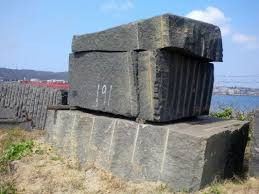
THE Mutoko Rural District Council (MRDC) has hailed the district—renowned for its vast granite deposits—as a cornerstone of Zimbabwe’s mining economy.
Yet, as extraction intensifies, so do concerns over whether the local community is truly benefiting from the riches buried beneath their land.
Black granite, prized globally for its durability and sleek appearance, is a sought-after material for high-end countertops, flooring, and architectural finishes.
Mutoko, located in Mashonaland East province, supplies roughly 75% of Zimbabwe’s annual black granite output, producing an estimated 150 000 tonnes each year.
Despite this significant contribution, questions linger about how much of this wealth trickles down to the people who call Mutoko home.
Speaking at the Mutoko Ward and District Alternative Mining Indaba (DAMI)—organised by the Zimbabwe Environmental Law Organisation (ZELO) and ActionAid—MRDC environment officer Innocent Nyangara acknowledged the sector’s economic importance but highlighted the glaring disparity between corporate profits and local development.
“Granite mining contributes to the district’s economy through revenue generation for MRDC and has potential to support development projects. It also fuels local business growth — from suppliers to equipment vendors and service providers,” Nyangara said.
“Mining operations in Mutoko generate revenue for the government through taxes and royalties, which can be redirected towards community development. If value addition and beneficiation factories were developed locally, they could create more jobs and stimulate local development.”
- ‘Zec refuses to release voters roll’…Mangwana, Silaigwana evasive
- Ziyambi defends Zec on voters roll
- Cross Border Traders approach more banks for Master Cards
- Senate votes 53-47 to confirm Ketanji Brown Jackson as the first black female Supreme Court justice
Keep Reading
Nyangara highlighted that companies such as Rich Basin and Wu Huasen Stone have begun granite processing in Mutoko, showing a shift toward value-addition. However, the majority of granite is still exported in raw form, limiting broader economic impact.
He warned the environmental costs were mounting, with granite quarrying linked to soil erosion, water pollution, deforestation, and open pits left unattended.
“Despite the income generated, the local community sees limited benefits, as most profits are externalised. Reports of forced evictions, land grabbing, and inadequate compensation have surfaced in some mining areas,” he added.
Nyangara also noted that agriculture, which is still the district’s mainstay, is increasingly affected by mining activity, raising further concerns about long-term sustainability.
According to ActionAid project coordinator Darlington Chidarara, Mutoko’s mining sector holds significant potential to uplift both the local community and the national economy.
“But this can only happen if investors and residents work together in good faith,” Chidarara warned.
He emphasised the importance of enforcing and properly utilising the 2% corporate social responsibility contribution from black granite mining.
“If the 2% corporate social responsibility contribution from black granite mining is properly enforced and utilised, it can go a long way in supporting schools, clinics, and roads in Mutoko,” he added.
ZELO extractives programme unit leader Joyce Machiri said the DAMI dialogue focused on unpacking key issues surrounding granite, lithium, and gold mining in Mutoko, especially in light of the ongoing lithium boom.
“This bottom-up approach ensures that community voices are heard and represented at every stage,” Machiri said
"We start at the grassroots, gathering insights from communities most affected by mining activities, and carry those concerns up through district engagements with stakeholders such as the local council, Environmental Management Agency, the Ministry of Mines, and mining companies."
Machiri also warned that the current lithium boom must not lead to the same mistakes experienced in past mineral rushes.
“With the current lithium boom, it’s critical we don’t repeat past mistakes seen with gold and platinum. We must ask — what are the opportunities, what are the risks, and how do we protect community interests?” she said.










